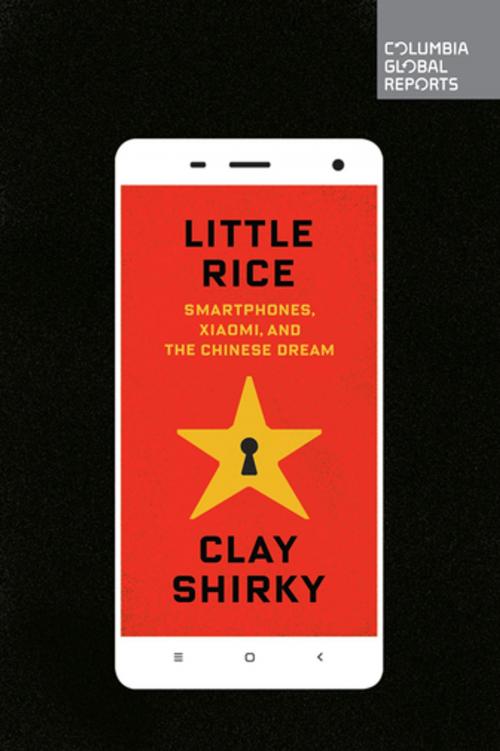Little Rice
Smartphones, Xiaomi, and the Chinese Dream
Nonfiction, Science & Nature, Technology, Telecommunications| Author: | Clay Shirky | ISBN: | 9780990976332 |
| Publisher: | Columbia Global Reports | Publication: | October 13, 2015 |
| Imprint: | Columbia Global Reports | Language: | English |
| Author: | Clay Shirky |
| ISBN: | 9780990976332 |
| Publisher: | Columbia Global Reports |
| Publication: | October 13, 2015 |
| Imprint: | Columbia Global Reports |
| Language: | English |
Almost unknown to the rest of the globe, Xiaomi has become the world's third-largest mobile phone manufacturer. Its high-end phones are tailored to Chinese and emerging markets, where it outsells even Samsung. Since the 1990s China has been climbing up the ladder of quality, from doing knockoffs to designing its own high-end goods.
Xiaomi - its name literally means "little rice" - is landing squarely in this shift in China's economy. But the remarkable rise of Xiaomi from startup to colossus is more than a business story, because mobile phones are special. The common desiderata of the global population, mobile phones offer the kind of freedom and connectedness that autocratic countries are terrified of. China's fortune and future clearly lie with "opening up" to the global market, requiring it to allow local entrepreneurs to experiment.
Clay Shirky, one of the most influential and original thinkers on how technological innovation affects social change around the world, now turns his attention to the most populous country of them all. The case of Xiaomi exemplifies the balancing act that China has to perfect to navigate between cheap copies and innovation, between the demands of local and global markets, and between freedom and control.
Almost unknown to the rest of the globe, Xiaomi has become the world's third-largest mobile phone manufacturer. Its high-end phones are tailored to Chinese and emerging markets, where it outsells even Samsung. Since the 1990s China has been climbing up the ladder of quality, from doing knockoffs to designing its own high-end goods.
Xiaomi - its name literally means "little rice" - is landing squarely in this shift in China's economy. But the remarkable rise of Xiaomi from startup to colossus is more than a business story, because mobile phones are special. The common desiderata of the global population, mobile phones offer the kind of freedom and connectedness that autocratic countries are terrified of. China's fortune and future clearly lie with "opening up" to the global market, requiring it to allow local entrepreneurs to experiment.
Clay Shirky, one of the most influential and original thinkers on how technological innovation affects social change around the world, now turns his attention to the most populous country of them all. The case of Xiaomi exemplifies the balancing act that China has to perfect to navigate between cheap copies and innovation, between the demands of local and global markets, and between freedom and control.















